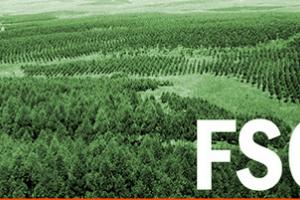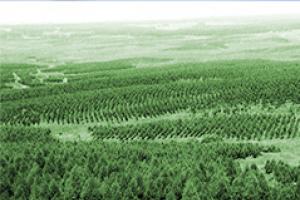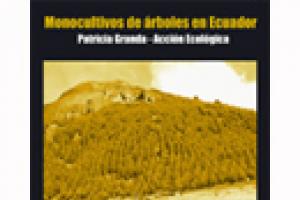The Ecuadorian communities affected by mining convened a Mining Uprising to take place on 5 June, World Environmental Day. Different points of resistance were established covering the national geography in Imbabura, Quito, Chimborazo, Cañar, Azuay, El Oro, Zamora and Morona. Although the protest was peaceful, law enforcement agents repressed the communities protesting during the first days, particular in Tarqui, Victoria del Portete, Molleturo and San Carlos-Balao, causing the indignation of the population over the police’s brutal and arbitrary treatment.
Ecuador
Bulletin articles
19 June 2007
Bulletin articles
19 May 2007
After 12 years, powerful multinational mining companies have been unable to bend peasant resolve in the zone of Intag, Canton Cotacachi, Imbabara Province in the northwest of Ecuador.
This nightmare began in 1991, when an anonymous Japanese man started to travel around the area in his vehicle. Nobody knew exactly what he was doing. Towards 1995, it became known that he was “prospecting for mines” that is to say, he was looking for minerals in the subsoil.
Bulletin articles
24 March 2007
The Ministry of the Environment is placing Ecuador’s indigenous territories in danger. Under a new term, that of “co-management” it intends to hand over our ancestral territories and their natural resources to logging, oil palm and mining companies.
Bulletin articles
26 February 2007
When couple of days ago President Rafael Correa affirmed that the environmentalists want to return to the Stone Age on requesting an oil moratorium he was only repeating what has been said for years by those who have shaped and maintained the dependent country we have… The problem is that this time he made this statement while the international press was sounding the alarm over global warming…if we burn more oil we will end up in the Stone Age!
Beyond this typically developmental comment, it invites us to remember Plato’s myth of the cavemen.
1 September 2006
Press Release - September 1, 2006
Other information
1 September 2006
We the undersigned wish to express our concern over the certification of tree plantations in our country by the FSC, which has granted a green label to monoculture plantations that have proven to be socially and environmentally destructive.
We are aware that the FSC is carrying out a review of its plantation certification policy, and it is our hope that the result of this process will be an end to the certification of these types of plantations by the FSC in the future.
Publications
25 August 2006
By Patricia Granda
Through various government programmes and initiatives, with the support of international cooperation agencies, monoculture tree plantations have been established in Ecuador’s three mainland regions.
Bulletin articles
2 July 2006
In April 2006, the German certifying firm GFA Consulting Group granted the FSC seal to Endesa-Botrosa’s timber operations and to its tree plantations located in the Rio Pitzara plot covering 8,380 hectares on the Ecuadorian coast (GFA-FM/COC-1267). FSC certification of Endesa Botrosa, belonging to the Durini Timber Group, represents a severe setback to the hundreds of local peasant, indigenous and Afro-Ecuadorian communities whose forests and livelihoods have been devastated for decades by this company.
Bulletin articles
2 July 2006
Ecuador is a country with one of the highest rates of deforestation in the world. In this process various actors are involved, not only the major timber companies that typically carry out both lawful and unlawful timber extraction activities, but also companies undertaking deforestation to install vast monoculture tree plantations, ranging from African palms to pine and eucalyptus.
Bulletin articles
5 June 2006
Much of the world’s population –especially males– will spend the coming weeks glued to the TV as the FIFA World Cup unfolds. While many are fully aware that this is no longer a mere sporting event, but rather a massive globalized business in which the players are little more than disposable gladiators at the service of big corporations, they are still drawn to keep watching, celebrating the victories and suffering the defeats as if they were their own.
Bulletin articles
5 June 2006
Many letters have been sent from abroad to the Government of Ecuador in the framework of the campaign to support Ecuadorian social and indigenous organizations that are endeavouring to avoid the adoption in that country of a legislation that will imply the expansion of large scale monoculture tree plantations (see the article on Ecuador in this bulletin).
Bulletin articles
6 May 2006
The experts at the service of transnational corporations have proved to have an unlimited inventive capacity to better serve those who are paying them. Among their most recent achievements is having managed to put up for sale nature itself under the guise of so-called “environmental services.” Expressions such as “oxygen sale” and “sale of carbon sinks” are now common currency, in particular in the countries of the South.



